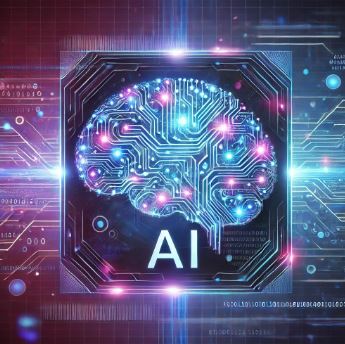The Role of AI in Sustainable Urban Development in 2025
As we whirl towards 2025, the echo of artificial intelligence (AI) resonates louder, singing a harmonious tune with sustainable urban development. Welcome to a future where smart cities are not just a sci-fi flick but a vivid reality, bustling with vibrant ecosystems optimized by AI. Picture this: AI technology enhancing our cities' efficiency, reducing waste, and whipping up innovative solutions to age-old urban challenges.
This is not just a pipedream; this is the rhythm of urban planning in the near future, and it's primed to hit all the right notes—think vibrant eco-friendly pathways, traffic that flows as smoothly as a hot knife through butter, and waste management systems more efficient than your neighbor's self-proclaimed "green thumb"!
The Enchantment of AI in Urban Landscapes
Imagine strolling through a city that remembers your preferences as sweetly as your grandma used to remember your favorite cookie recipe. AI systems analyzing vast amounts of data effortlessly work to make your urban life smoother. The streets are monitored for traffic, air quality is managed with the finesse of a fine chef seasoning a dish, and public transport is as dependable as your best friend!
Sustainable Solutions on the Horizon
By 2025, AI will be the backbone of sustainable practices across various urban domains, from waste management to energy conservation. Imagine solar panels adjusting their angles precisely based on AI predictions about sunshine patterns. No more sunbathing panels wilting under dull skies! That's optimization with flair.
Traffic will be a breeze, thanks to AI-controlled lights that sense congestion and adjust accordingly, like a wizard waving a magic wand to clear the path for you. No more gridlock that makes you feel like a trapped sardine in a can!
Data: The Goldmine for Urban AI
Think of data as the magic potion for AI-driven initiatives. The more quality data available, the better the outcomes. City planners will gather insightful databases, collecting information on everything from resident preferences and resource use to environmental impacts. It's like a city-wide scavenger hunt for information, where the prize is a sustainable future!
But wait, there’s a twist: data privacy. As thrilling as this quest sounds, the need for ethical data collection practices will be paramount to ensure citizens feel secure sharing their information. (Nobody wants to be that awkward guy at the party who overshares!)
The Role of AI in Climate Action
Climate change is not just an annoying buzzword; it’s a full-blown crisis that demands innovative solutions. AI will power strategies that monitor emissions and optimize energy usage in real time. This tech-savvy soldier in the battle against climate change will work diligently to promote sustainability as if it were the latest viral dance craze.
- Optimizing Water Management: AI will forecast rainfall and drought patterns to manage water resources efficiently.
- Smart Waste Systems: AI will facilitate real-time sorting and recycling, turning waste into a precious resource.
- Greener Transportation: Autonomous vehicles powered by AI will revolutionize how we navigate our urban jungles, reducing emissions and hassle.
AI and Enhanced Public Safety
Gone are the days when safety measures were as outdated as dial-up internet. AI will play a pivotal role in enhancing public safety with smarter surveillance systems and predictive policing, reducing crime rates and fostering community trust. With AI analyzing crime data patterns, the police can deploy resources more effectively, like a chess player anticipating the opponent's next move.
Conclusion: The Future is Bright, and AI is Leading the Way!
In 2025, the synergy between AI and sustainable urban development will light the path toward a greener, cleaner, and more efficient urban life. As cities continue to evolve, AI will be the unsung hero, integrating sustainability into the urban fabric as naturally as sunflowers turn towards the sun.
The role of AI is not just a technological leap; it’s a human-centric approach to build our cities that serves all inhabitants. So let’s raise a toast to 2025—a year where AI doesn’t just help manage urban chaos but creates a flourishing ecosystem that’s as vibrant as laughter in a sunlit park.
